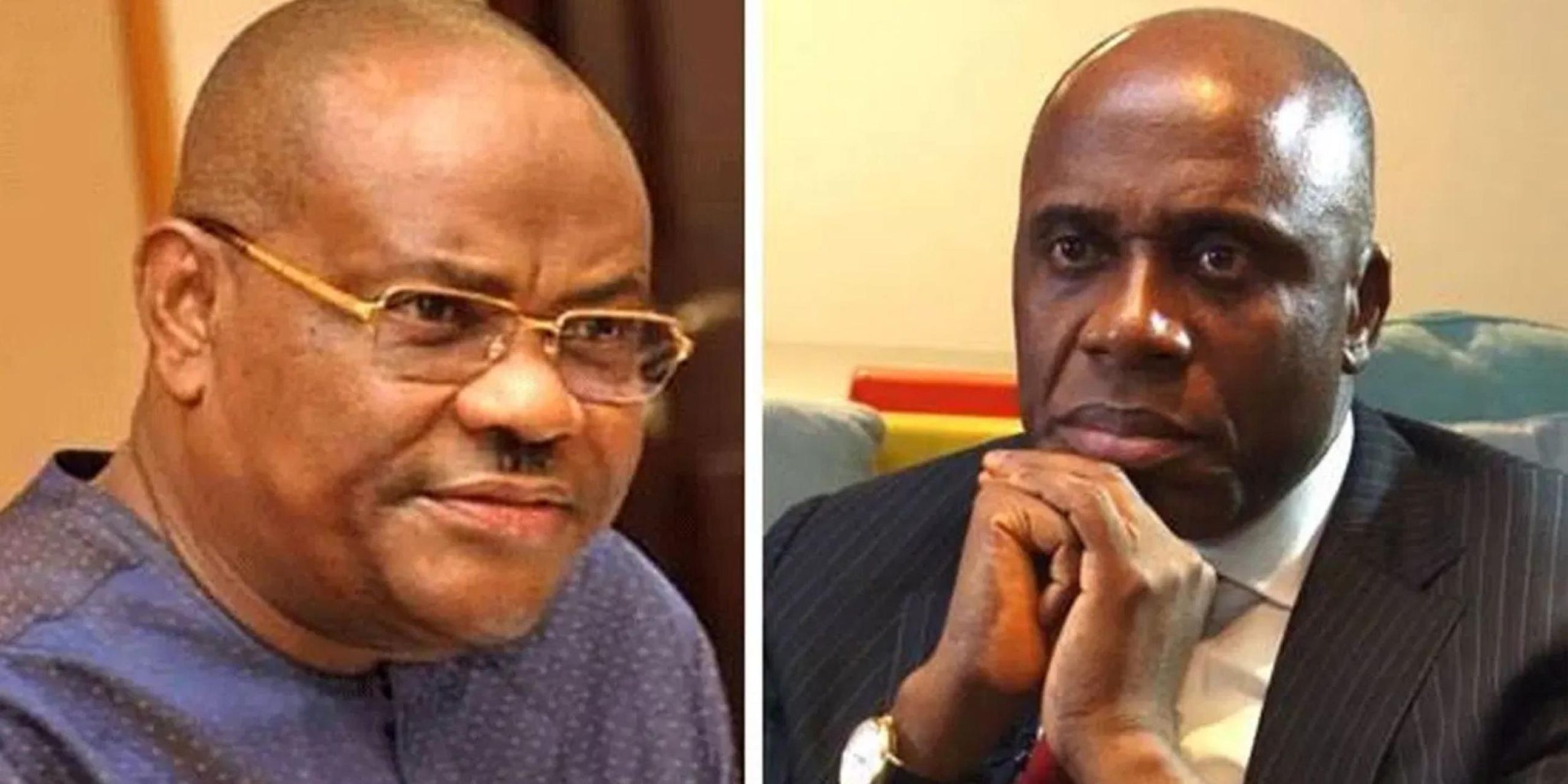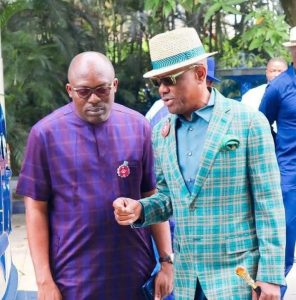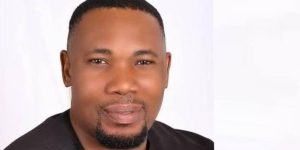Amaechi Slams Wike, Calls Him ‘A Child’: ‘I Refused To Make Him Finance Commissioner’
In a move that rekindled the flames of a political rivalry long in the public eye, former Minister of Transportation and ex-Governor of Rivers State, Rotimi Amaechi, delivered a stinging critique of his erstwhile ally, Nyesom Wike, currently serving as the Minister of the Federal Capital Territory (FCT). The remarks came during an interview on Arise Television’s Prime Time on Tuesday evening, where Amaechi laid bare his thoughts on Wike’s political trajectory, dismissing claims that Wike played any instrumental role in making him governor.
The interview, which quickly made waves across Nigerian media and political spheres, marks another chapter in the long-running and tumultuous relationship between the two political heavyweights from Rivers State. Once allies under the same political umbrella, their relationship has deteriorated over the years into public spats and fierce political contestations.
During the televised segment, Amaechi categorically refuted the suggestion that Wike was a kingmaker in his rise to governorship. Instead, he attributed his ascension to a divine mandate, the support of former Governor Dr. Peter Odili, the judgment of the Nigerian judiciary, and the will of the Rivers people.
“The first thing I want to make clear is this: nobody made me governor. It was God, Dr. Peter Odili, and the Nigerian judiciary—nobody else,” Amaechi stated firmly, his tone bearing the weight of unresolved grievances and personal convictions.
This was a direct counter to Wike’s recent jab, where the FCT Minister, in response to Amaechi’s 60th birthday remarks about nationwide hardship and hunger, dismissed the elder statesman as being desperate not for food, but for political relevance.
Amaechi revisited the highly publicized legal battle that culminated in his governorship in 2007, a landmark case in Nigerian judicial and political history. He credited legal luminary Lateef Fagbemi (SAN), now the Attorney General of the Federation, as the man who successfully argued his case.
“I went to court. If anything, Lateef Fagbemi, now Attorney General of the Federation, was my lawyer. You can ask him,” he declared, emphasizing the institutional process that installed him as governor in the face of intense opposition.
YOU MAY READ
I’m Hungry, Says Amaechi After Two And Half Decades Of Active Politics
Amaechi had originally won the primaries of the Peoples Democratic Party (PDP) for the governorship election in 2007, but his name was controversially substituted. He challenged the decision in court and eventually won at the Supreme Court, which ruled that he was the rightful candidate and should be sworn in—despite not appearing on the ballot. That ruling remains one of the most pivotal decisions in Nigerian electoral jurisprudence.
Perhaps the most provocative revelation during the interview was Amaechi’s claim that Wike had lobbied to be appointed Commissioner for Finance in Rivers State, a powerful and lucrative position. According to Amaechi, a delegation led by Mohammed Adoke, the then Attorney General of the Federation, flew to Port Harcourt to advocate for Wike’s preferred appointment.
“But I said no,” Amaechi recounted. “I wanted Wike as Chief of Staff so I could supervise him directly. I never offered him the position of Commissioner for Finance.”
The implication of that statement was clear: Amaechi did not trust Wike enough to give him unfettered control over state finances, a disclosure that casts a shadow over their past professional dynamic and adds fuel to the perception that their relationship was laced with mutual suspicion even at its peak.
In a scathing assessment of Wike’s political ego, Amaechi suggested that Wike’s narrative about making others politically relevant was self-serving.
“Let’s be honest: he made himself Chief of Staff, made himself Governor, made himself Minister—so let it end there. Don’t go any further,” Amaechi stated with evident sarcasm. “I don’t want to join issues with children.”
The comment struck a nerve, both literally and figuratively, as it encapsulated Amaechi’s dismissal of Wike’s stature. While both men have held significant positions in Nigeria’s political landscape, Amaechi was keen to establish a hierarchical distinction, rooted in chronology and influence.
“I’ve said it several times: he was my subordinate. I was once his boss, whether he likes it or not. I hired him. I could have said no. Just because we’ve both held certain positions doesn’t mean we’re equals,” Amaechi added.
That assertion sheds light on the core of the rivalry: a contest not just of political positions but of seniority, legacy, and influence within Rivers State and Nigerian politics at large. It underscores a struggle for historical primacy—who holds the greater claim to Rivers’ political narrative?
To further reinforce his political pedigree, Amaechi reminded the public that his resume includes the role of Speaker of the Rivers State House of Assembly, a position he held for eight years before becoming governor. That, he said, gives him an edge over Wike.
“Yes, I was a governor. He became a governor. I was a minister. He became a minister. But I was also a Speaker,” Amaechi said, subtly suggesting a broader base of political experience.
YOU MAY READ
Amaechi, Atiku, El-Rufai are Forming Alliance Driven by Desperation and Self-Interest – APC
The exchange between Amaechi and Wike is not just a personal feud—it has implications for the political stability and future of Rivers State. Both men remain influential figures within their parties and continue to shape narratives and power alignments at both state and national levels.
Wike, once a stalwart of the PDP, played a pivotal role in the emergence of President Bola Tinubu by working against his party’s presidential candidate in the 2023 elections. His subsequent appointment as FCT Minister is seen by many as a reward for that defection in practice, if not in name.
Amaechi, on the other hand, was a leading contender in the APC presidential primaries and continues to command respect within the party’s ranks, particularly among its founding members and older political operatives.
The open feud reflects a deeper ideological and generational clash—between an elder statesman looking to preserve his legacy and a political tactician eager to chart his own path, even at the expense of his former mentors.
Observers note that the bitter fallout began when Wike became governor and allegedly sought to erase Amaechi’s legacy, initiating investigations, canceling projects, and rebranding institutions. That cycle of political vengeance created a toxic atmosphere in Rivers politics, culminating in violence, fractured loyalties, and public disgrace for many political actors.
Now, as both men occupy federal roles, their rivalry continues to reverberate—this time on the national stage. What remains unclear is whether their feud will evolve into a larger contest for influence within Tinubu’s government or fizzle out with time.
Political commentators have been quick to weigh in. Some view Amaechi’s remarks as a strategic re-entry into national politics, especially after his silence following the 2023 APC primaries. Others see it as a personal outburst borne of unresolved betrayal.
“It’s a power struggle in public. But Amaechi is reasserting that the younger man, Wike, should not rewrite history,” said Abuja-based political analyst, Tunde Bamidele. “That’s what this is about: the politics of memory and legacy.”
On social media, reactions have been mixed. While some hailed Amaechi for “speaking the truth,” others criticized the exchange as unproductive and unbecoming of national leaders.
The Amaechi-Wike saga is emblematic of Nigeria’s brand of political evolution—one shaped not just by ideology or performance but by loyalty, betrayal, and an unending quest for dominance. Their clash, now reignited, serves as a cautionary tale about the fragility of political alliances and the enduring nature of personal grievances.
Whether or not the duo can find a path to reconciliation is uncertain. What is clear, however, is that their story is far from over. As Nigeria approaches another election cycle and the political chessboard resets once again, their paths will almost certainly cross—perhaps as rivals, perhaps as reluctant allies, but never as equals in their own minds.





